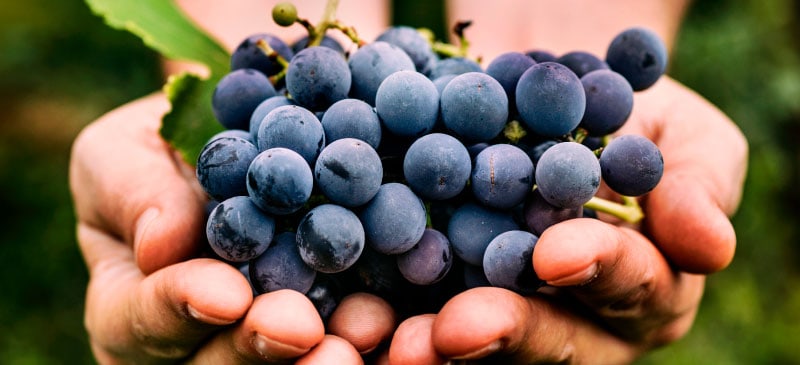This Dr. Axe content is medically reviewed or fact checked to ensure factually accurate information.
With strict editorial sourcing guidelines, we only link to academic research institutions, reputable media sites and, when research is available, medically peer-reviewed studies. Note that the numbers in parentheses (1, 2, etc.) are clickable links to these studies.
The information in our articles is NOT intended to replace a one-on-one relationship with a qualified health care professional and is not intended as medical advice.
This article is based on scientific evidence, written by experts and fact checked by our trained editorial staff. Note that the numbers in parentheses (1, 2, etc.) are clickable links to medically peer-reviewed studies.
Our team includes licensed nutritionists and dietitians, certified health education specialists, as well as certified strength and conditioning specialists, personal trainers and corrective exercise specialists. Our team aims to be not only thorough with its research, but also objective and unbiased.
The information in our articles is NOT intended to replace a one-on-one relationship with a qualified health care professional and is not intended as medical advice.
Study Findings Suggest Eating Grapes for Longevity
August 31, 2022

Have you ever heard that drinking wine is linked to a longer life span? Some research shows this is true, specifically that having one to two glasses of wine per day (particularly red wine) may help protect your heart, liver and brain.
As such, is eating grapes for longevity effective, or is it something else about wine that makes it beneficial for your health?
A study suggests that grapes, which are high in antioxidants, may help prevent oxidative stress, which is a root cause of many diseases. Other ways in which eating grapes may boost your health include by protecting your liver from accumulating fat and supporting detoxification processes.
Study Findings: 2 Cups of Grapes Per Day
A 2022 animal study published in the journal Foods explored whether grape consumption could counteract the negative effects of an unhealthy, high-fat diet (also called a “western-pattern diet”). The study was conducted on female mice, not humans, so we don’t know for sure whether the results apply to adults, but the findings were interesting.
Mice in the study were split into different groups: those fed a standard mouse diet with or without the addition of grape powder and those fed a high-fat diet (HFD) with or without grape powder.
After following the different diets for 13 weeks, the mice were euthanized, and their livers were analyzed to determine how the diets and grape powder affected genetic expressions and liver biomarkers.
It was found that mice following the standard diet with grape powder experienced significant, positive changes in:
- gene expressions
- mitochondria activity
- protein translation
- drug metabolism
- glutathione status
- detoxification
- oxidative stress-associated pathways
The grape powder added to the mice’s diets seemed to positively affect genes that are associated with the reduction of oxidative stress and improvements in detoxification, both of which may have disease-fighting effects. Researchers believe these effect may lower the risk for diseases such as Alzheimer’s disease and nonalcoholic fatty liver disease.
The greatest divergence was found to be between the group fed a high-fat diet with grape powder and the group fed a high-fat diet without grape powder.
Mice given grape powder experienced improvements in lipid (fat) content and cholesterol synthesis even when fed a high-fat diet. The grape-fed mice also experience longer survival time compared to those not fed grape powder.
What It Means
The study described above suggests that a diet that includes grapes/grape powder may help fight markers of oxidative stress and fatty liver induced by an unhealthy, high-fat diet. This can potentially lead to increased longevity.
To get roughly the same benefits as the mice in this study, researchers suggest eating about two cups of grapes per day.
Which antioxidants do grapes provide?
Grapes are a great source of antioxidants, including resveratrol, a type of flavonoid.
They also contain catechins, quercetin, phenolic acids, stilbenes and anthocyanins, which are the same types of health-promoting compounds found in foods like cherries, berries, cranberries, tropical fruits and other dark-colored foods, like cocoa and black beans.
Why are grapes good for the elderly?
Due to their supply of phytonutrients, studies suggest that grapes have the ability to help protect against diseases that are more common among older adults, such as those tied to oxidative stress, free radical damage and inflammation. These include conditions such as some types of cancer, liver disease and neurodegenerative diseases.
Are there healthier fruits than grapes? What fruit has the most resveratrol?
Grapes, wine and grape juice are among the best source of resveratrol, but they’re not the only sources. Resveratrol is also found in berries plus many deeply colored fruits, veggies and plants.
In terms of providing the most health benefits, fruits that are known to defend against disease formation include:
- grapes
- kiwi
- strawberries
- blueberries
- cranberries
- raspberries
- blackberries
- oranges
- grapefruit
- and others
How to Add Grapes to Diet (Plus Longevity Tips)
Which grape has the most health benefits? All types are beneficial, especially red and black/purple grapes, but you want to be sure to eat the skin of grapes to reap the most positive effects. The skin is where the antioxidants and phytonutrients are mostly found!
Here are some ways to add more grapes to your meals:
- Top a salad with sliced grapes (or raisins).
- Add some to homemade chicken salad.
- Throw some into a smoothie or shake.
- Make homemade low-sugar jam or jelly.
What else can you do to help increase your life span?
- Eat lots of different high-antioxidant and cancer-fighting foods, such as by aiming to “eat the rainbow.”
- Don’t forget about other anti-inflammatory foods, like fish, all types of vegetables, olive oil, nuts, seeds, legumes, whole grains and herbs.
- Exercise regularly, aiming for 30 to 60 minutes per day.
- Get enough sleep (seven to nine hours per night), and keep an eye on your stress levels.
- Avoid too much alcohol, smoking cigarettes and drug use.
- Limit exposure to carcinogens and toxins, such as heavy metals, asbestos, nickel, cadmium, radon, vinyl chloride, benzidine and benzene.
Conclusion
- A new study suggests eating grapes for longevity, considering they seem to help protect against negative effects of a high-fat Western diet, such as fatty liver disease.
- Grapes are full of antioxidants, including resveratrol, catechins and others. These can help fight oxidative stress and inflammation and may boost detoxification.
- Add more grapes to your diet for help defending against diseases, along with other nutrient-rich fruits, like berries, tropical fruits and kiwi.








